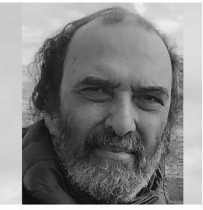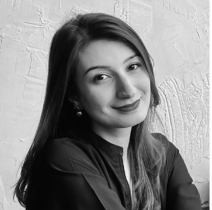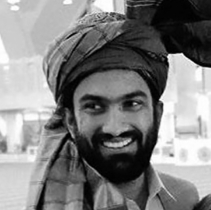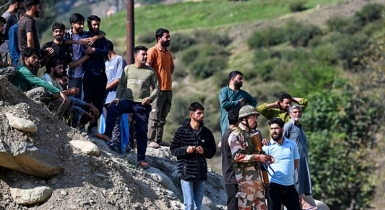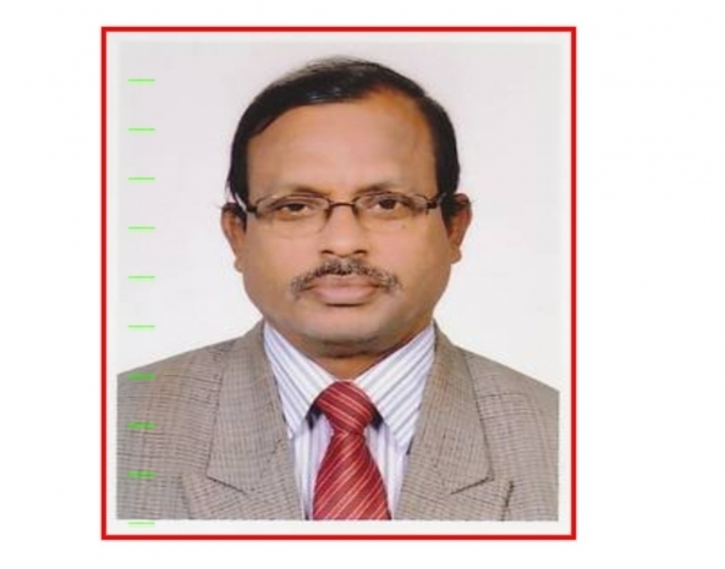
Interviews of and reports and analysis on Sheikh Hasina are being published non-stop in various media of the world. Bangladesh today is known as a “role model of development” due to Sheikh Hasina's capable and struggling leadership, which is being promoted in various mass media of the world. Bangladesh's journey towards 'development' under the leadership of Sheikh Hasina can be compared to Singapore's journey towards development under the leadership of Lee Kuan Yew. At various times, like Sheikh Hasina, report on and interview of Lee Kuan Yew has also been published and porayed by various well-known news media. The world-famous Time magazine published a cover report on Sheikh Hasina last November 2 (2023). The report was jointly written by Charlie Campbell from Dhaka and Astha Rajbanshi from London.
In the interview with Time magazine, Sheikh Hasina said that it would not be easy to oust her "through a democratic system" as she was widely supported by the people. Her statement to Time magazine reflects the reality, which is undeniable and significant. Earlier in 2018, Sheikh Hasina's name was included in the list of the world's 100 best personalities published in the same Time magazine. Human Rights Watch South Asia Director Meenakshi Ganguly highlighted Sheikh Hasina's legacy of not being "afraid of war" in Time magazine. In fact, the history of the Awami League and its struggle to establish and develop democracy in this country is inextricably linked with this 'war'. The history of the struggle for democracy has been concluded through declaration and victory in the war of liberation. Our independence was declared and led by Father of the Nation Bangabandhu Sheikh Mujibur Rahman. That fight for democracy is still going on today. And now it is being taken forward by a tireless warrior Sheikh Hasina, the privileged daughter of Bangabandhu.
Lee Kuan Yew, the first Prime Minister of Singapore and the man credited with creating modern Singapore, has been involved in the country's politics since Singapore separated from Malaysia in 1965. In the fall of 2005, Time's Johar Abdul Karim, Simon Elegant and Michael Elliott interviewed Lee Kuan Yew. In that interview, Lee Kuan Yew shares his views on some of the most newsworthy topics of the day, from the rise of China to the threat of radical Islam. In this interview Lee then said: "I'm not guided by what Human Rights Watch says. I'm not interested in Freedom House or whatever ratings. At the end of the day, is Singapore society good or bad? That's the test. What are the indicators of a well-governed society? Look at last week's Economist Humanity Index, we are right at the top," he told Time. Like Lee Kuan Yew, Bangabandhu's daughter Sheikh Hasina has apparently devoted herself to the development and welfare of the country and people without caring about any criticism. And so the people are also giving her support like her father Bangabandhu.
It may be mentioned that the histories of Bangladesh and Singapore are quite different. The father of the nation and elected head of the government of Bangladesh, Bangabandhu Sheikh Mujibur Rahman was brutally murdered along with his family members on Friday, August 15, 1975, at around 4.45 a.m. This Barbaric and tragic event happened at a time when Bangabandhu was working tirelessly to reconstruct the war-torn country and make Bangladesh a developed country. Therefore, like Lee Kuan Yew's Singapore, the great architect of independent Bangladesh, Bangabandhu Sheikh Mujibur Rahman, did not get enough time to build a developed Bangladesh.
At the time of Bangabandhu's murder, Bangabandhu's two daughters were guests at the residence of Bangladesh Ambassador Sanaul Haque in Belgium. Bangladesh's ambassador to Germany, Humayun Rashid Chowdhury came to know about the assassination of Bangabandhu through a a phone call from German journalist Gisela Bonn (65) at around 3.30 p.m. German time, This extremely sad news was confirmed by late Sanaul Haque at 6.00 a.m. German time through a telephone call to Chowdhury. On hearing the news of Bangabandhu's assassination, Sanaul Haque asked his guests Bangabandhu's daughter Sheikh Hasina and Sheikh Rehana to leave his residence, which was extremely rude and inhumane. Sanaul Haque's change of heart, who until the previous night had greeted Bangabandhu's two daughters with respect on receiving such a sad news, is nothing but disloyal. Humayun Rashid Chowdhury then asked (on telephone) to send Bangabandhu's two daughters from Brussels to the Bangladesh Embassy in Bonn. Sanaul Haque did not agree to that either. What cruel irony! Bangabandhu's two daughters later arrived at Humayun Rashid Chowdhury's residence in Germany on 15 August 1975 at 4.30 pm. From there, Bangabandhu's daughters Sheikh Hasina and Sheikh Rehana and their families arrived in Delhi on the morning of 25 August 1975. They were taken to a safe house from Delhi airport.
After the assassination of Bangabandhu, Bangladesh was flattened under the boots of the military dictator Ziaur Rahman. The holy constitution, democracy and human rights were also crushed. The festival of murder-coup d’etat-conspiracy and death continued. Sheikh Hasina's life in exile began with the horror of death. Six long years passed in indescribable suffering and uncertainty. This has been written in a report published in India's famous news media DNA (Daily News and Analysis) on April 7, 2017. In this report titled "The Time Delhi Gave Shelter to Sheikh Hasina", Vivek Shukla wrote, Sheikh Hasina lived at a residence at 56 Ring Road in Lajpat Nagar-3, Delhi and later at a residence at Pandara Road near Pandara Market. Meanwhile, she, her sister Bangabandhu's youngest daughter Sheikh Rehana, Sheikh Hasina’s husband internationally renowned nuclear scientist Dr. M. A. Wazed Mia, two children Sajeeb Wazed Joy and Saima Wazed Puthul lived there. Dr. Wazed Mia was working in Atomic Energy Commission of India and two children were studying in various educational institutions in India. Sajeev Wazed Joy studied at St. Joseph's College in Nainital and Kodaikanal International School in Palani Hills, Tamil Nadu. Sajib Wazed Joy later studied at the Department of Computer Science at Bangalore University and later at the University of Texas at Arlington, USA. Famous journalist A.L. Khatib author of ‘Who Killed Mujib’, was working as personal assistant of Sheikh Hasina.
On April 22, 2020, another famous magazine “Forbes” in a report entitled “Eight (More) Women Leaders Facing the Coronavirus Crisis” praised the success of the Sheikh Hasina-led government in dealing with the Covid-19 pandemic. "Forbes" wrote, "Bangladesh, a country of about 161 million people under the leadership of Sheikh Hasina, is no stranger to crisis. Bangladesh's rapid recovery from the Corona crisis due to appropriate action by the Sheikh Hasina government has been appreciated by the World Economic.
Seema Guha wrote in a report titled "Bangladesh's Lonely Battle Against Climate Change" in Outlook India magazine on September 6, 2022, "Sheikh Hasina has changed the profile of Bangladesh in three terms as Prime Minister. The country is now poised to emerge from the Least Developed Country (LDC) status by 2026.
Sheikh Hasina's interview in the globally acclaimed American weekly Time magazine was published on November 2 with a cover report of about 3,400 words titled "Sheikh Hasina's Grip on Power". There he said: "Through a democratic process" it is not easy to oust her. She says, "The only option is to eliminate me. And I am ready to die for my people."
"I am confident that my people are with me," Sheikh Hasina said in an interview with Time in early September. He confidently says "They (the people) are my main strength".
The globally renowned magazine termed Sheikh Hasina's economic achievements as impressive, saying Bangladesh went from struggling to feed its people to food exporters, with GDP growing from $71 billion in 2006 to $460 billion in 2022, making it the second largest economy in South Asia after India. It said Bangladesh's social indicators have also improved, with 98% of girls currently receiving primary education.
It said Bangladesh is moving into high-tech manufacturing, allowing international companies like Samsung to outsource supply chains from China. "We must make progress in democracy, human rights, freedom of speech," the magazine quoted Professor Mohammad Ali Arafat, a member of parliament from the central Awami League. "But we have come a long way," he said.
The magazine says Sheikh Hasina is the world's longest-serving female head of government, having served as prime minister since 2009 after a previous term of 1996 to 2001. Besides, Sheikh Hasina is credited with defeating both the resurgent Islamists and the military dictatorship that once seized state power illegally. Having already won more elections than Margaret Thatcher or Indira Gandhi, Sheikh Hasina is determined to extend that run at the ballot box in January 2024.
In the interview, Sheikh Hasina mocked the BNP, created by the former junta, as a "terrorist party" that "never believed in democracy". Sheikh Hasina said, "Khaleda Zia ruled like a military dictator". Sheikh Hasina highlighted the violence that BNP supporters fueled during and after the elections of 2014 and 2018.
What a fourth term for Sheikh Hasina will mean for Bangladesh is a polarizing question, given that most Americans know the country from the ready-made clothing labels they buy, but it is a country with a more mixed Muslim population than any in the Middle East. A nation with significant minorities of about 10 percent Hindus, Buddhists, Christians and others. Although constitutionally secular, after 15 August 1975 the first military ruler Ziaur Rahman made the country's constitution communal. Then in 1988 a second military dictator H. M. Ershad made Islam the state religion, creating a paradox that has proved fertile ground for radical fundamentalists.
Sheikh Hasina cited her government's introduction of transparent ballot boxes and registration papers linked to ID cards and biometric data as proof of her commitment to free elections. After her father's assassination, Hasina was only allowed to return to Bangladesh in 1981, when she was mobbed by thousands of Awami League supporters, and spent the following years agitating for popular elections and an end to military rule. In this report of Time, Sheikh Hasina said, "This was our struggle". "Right to vote, right to food was our slogan," she said. It is said that Bangladesh began Islamization in 1977 under the rule of BNP’s founder Ziaur Rahman. His BNP is today allied with more conservative groups, while Bangladesh's religious minorities traditionally favor the Awami League. Time magazine (November 2, 2023) said, being the hostage to location, size and geography of Bangladesh, Sheikh Hasina's government has artfully balanced Bangladesh's relations with India, US, China and Russia. When asked about the Rohingya, Sheikh Hasina reminded the world that "for six years my sister and I lived as refugees outside the country, so we can feel their pain and suffering."
*Professor Dr. Arun Kumar Goswami, Director, Center for South Asian Studies, Dhaka. Former Dean, Faculty of Social Sciences and Former Chairman, Department of Political Science, Jagannath University.



